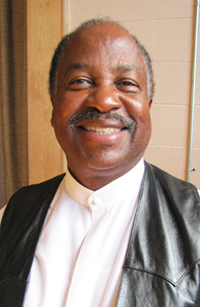
By Lafe Tolliver, Esq
Guest Column
As many of you may know, I own and manage a discreet employment counseling service known as, City Confidential, Inc. I have been doing this for some years and have recently been flooded with inquiries from local officials seeking a more reliable way to properly vet potential city council candidates.
In light of the recent spate of City of Toledo councilmanic scandals, including a recent inquiry from state and county law enforcement, an assistant to the mayor, asking to remain anonymous, inquired about what my company could do to ensure that the city does not face any more negative publicity about the machinations of its council members.
I was honored that my company would be considered for such important vetting work but I was somewhat hesitant to undertake such a grueling process unless and until my demand for significant renumeration would be honored.
My demand was met when I received a hand delivered check in the amount of mid six figures from the City of Toledo Treasury Department. I was hoping against hope that my unusually high fee would dissuade the mayor’s office from proceeding forward but when they met my conditions, I agreed to undertake the project.
At the outset, you must understand that such vetting work is exceedingly difficult and requires great sensitivity because you must ask questions that could make an interviewee blanch and really begin to wonder, “Is this worth it?”
The below sample questions and, “what if” scenarios are of my own concoction but over the past 14 years, they have proven to be enormously effective in rooting out pretenders and the fakirs who are simply seeking a soft place to land a cushy city job.
I make no excuses for the questions because when my vetted candidates pass my grueling test, they are eminently qualified for the sometimes thankless and grueling task of being a committed public servant.
As background, each candidate to be vetted does a water-only fast for two days before the interview; and they are placed in soundproof room with just my voice being heard over the intercom.
The taxing interview lasts for about five hours with just a water break and restroom privileges.
The candidate is seated in an upright metal chair. The room has no windows and the room temperature is kept at a steady 82 degrees. I have found out that heat will break down the most evasive candidate so that he or she is anxious to tell the truth and get out of the room before heat exhaustion sets in.
So, here are some sample questions. The questions are based upon the highly acclaimed Hessin-Dauphine Combat Scale template which was developed in 1995 by the Navy in order to test potential nuclear submarine captains and their propensity to withstand the rigors of long periods of time underwater in a confined space.
QUESTION ONE: If given the chance that you would not be found out, would you take or use property belonging to someone else knowing that it would be returned in good order.
QUESTION TWO: If given a chance, would you moonlight on another job even though such moonlighting would impact upon your current job time and performance.
QUESTION THREE: If told that you were being monitored or watched as to your daily activities, would you act any differently if you were not being observed.
QUESTION FOUR: Tell me in your own words, why you would want to work for a city or a county or state agency.
QUESTION FIVE: Do you like power simply for the sake of having power over someone or over some project.
QUESTION SIX: If you saw a crime being committed in your presence would you notify the appropriate authorities or would try to remedy the problem yourself.
QUESTION SEVEN: On a scale of one to 10, how concerned are you about your image or reputation for being of good character.
QUESTION EIGHT: If you could get away with it, would you intentionally change figures to make you look better to your superiors.
QUESTION NINE: You are in a crowd of six persons. Suddenly, five of them accuse you of being ill prepared to do the assigned task. Do you disregard them and work on or do you question their factual basis for such statements.
QUESTION 10: Would you voluntarily take a polygraph test if you were challenged to do so for the sake of your continuing job employment.
QUESTION 11: When you dine out with a group, do you disappear at the time that the check is being presented for payment.
QUESTION 12: If you have knowledge that an employee is not qualified for his or her job, do you report it to human relations or do you go to the employee and offer assistance.
QUESTION 13: If you had a chance to re-write your history, what changes would you make and why.
QUESTION 14: When given a chance to attend your child’s school play or to catch up on work, which one do you choose.
End. As you can discern, the above small sample of questions are formatted in such a way that your thinking processes are not allowed to follow a preset pattern of answers but rather to inject questions that do not build upon the last question and thus, it leaves you wondering, “did I answer the earlier question correctly?”
Once the interviewee has finished, she or he is debriefed and is given a light meal and is informed that the results will be available in three business days. Incredibly, most interviewees call me ahead of time asking to change an answer or pester me with questions about how they did.
Uniformly, I always tell them, “You could have done better, but it is what it is.” When asked if they could repeat the test, the answer is always a, “No!”
Contact Lafe Tolliver at tolliver@juno.com
